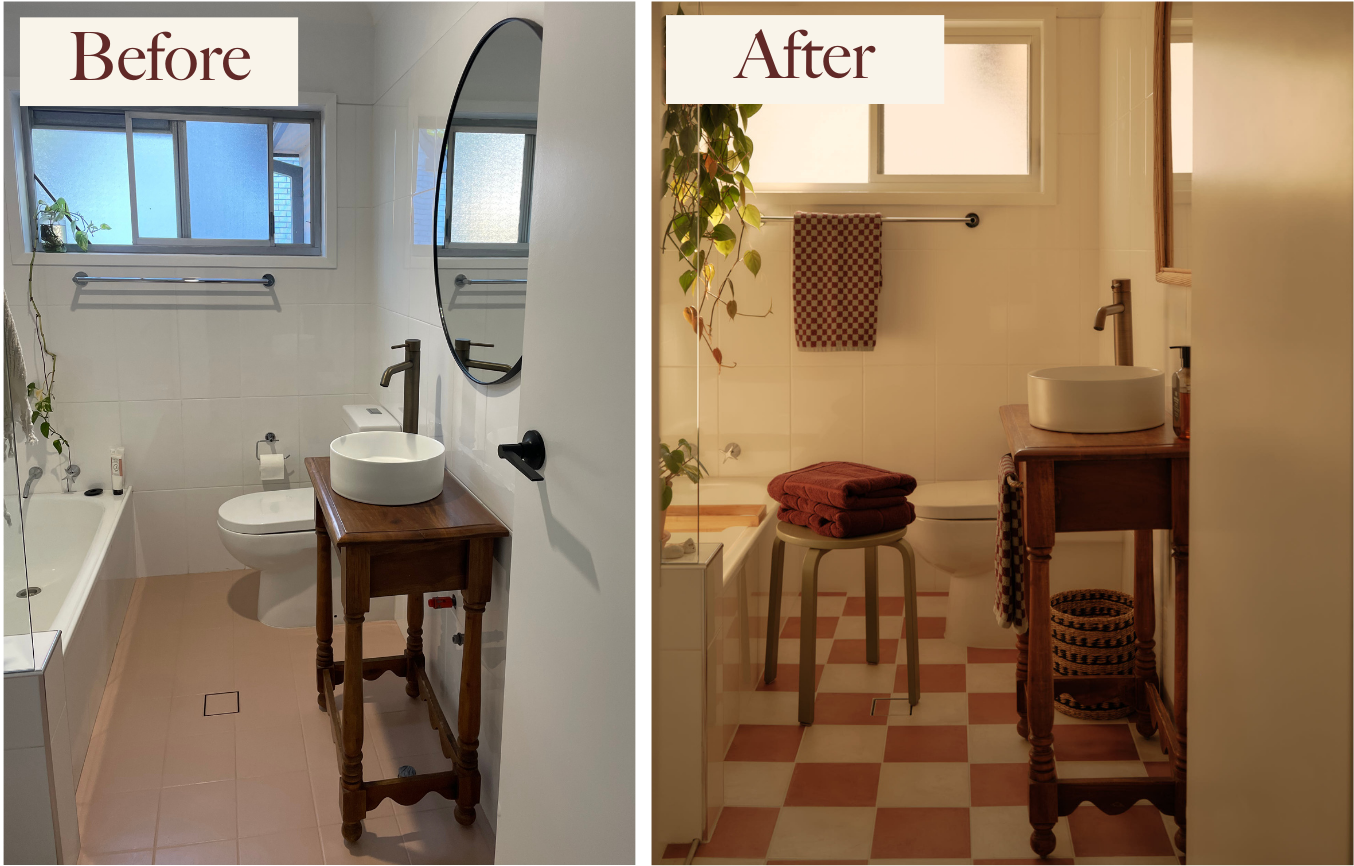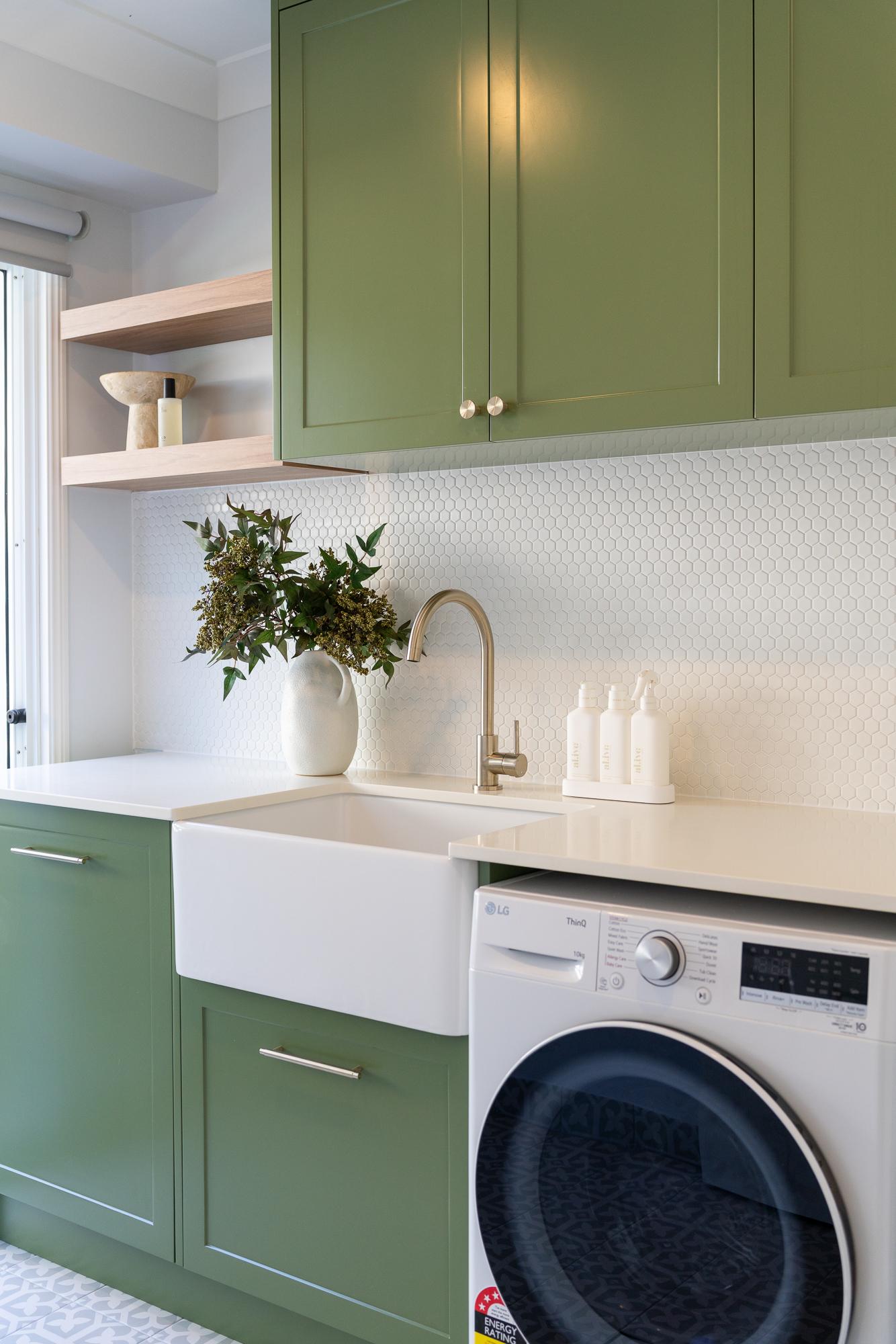8 Common Home Renovation Myths, Busted
Renovations can be a lot of things — rewarding, exhausting, fun, creative, time-consuming. They can also be a little confusing, particularly when it comes to knowing what advice to trust. Even the most switched-on homeowners get tripped up by common renovation myths.
We bust eight of the biggest renovation myths doing the rounds, from thinking DIY always saves you money to designing for future owners in mind.

Debunking common home renovation myths
Fact or fiction? Here are eight renovation myths broken down, and what we think you should do instead.
1. DIYing will save you money
Many people are surprised by how much DIY home renovations cost compared to bringing in professionals. They think that if you roll up your sleeves and do it yourself, you’ll always save money — but this isn’t always the case. While there are some DIY tasks you can do to cut costs, you need to acknowledge which jobs are beyond your scope.
When you add up tool and material costs, as well as the cost of your personal time, it can be more expensive than just paying someone else to do it for you. And if your DIY job isn’t up to scratch, it might not hold up over time, costing you more in repairs or replacements later.
Run the numbers and be realistic about whether it’s actually a job you can do properly with lasting results, particularly if it requires a specialised skill. When in doubt, call in the experts.
2. You should always follow home renovation trends

As we scroll our social media feeds, we come across so many homes with trendy decor that make us think we need the same look. But trends constantly chop and change, and if you've made permanent changes to your home following them, you'll have an outdated space in no time.
Instead of stealing renovation ideas straight from Pinterest or Instagram, think about what changes you need and will hold up over time.
You don’t have to choose neutral colours (unless that’s your preference), but whatever you do choose, make sure you genuinely love them. Whether you’re renovating a bathroom, kitchen or laundry, use high-quality materials like tiles, floors and cabinetry to give your space a strong foundation. You can then experiment with trendy home decor, giving you the freedom to switch up the space as your style changes.
3. Quick fixes are cheaper than proper repairs
Many will lean towards a quick fix given the option, thinking it’ll save them time and money. Unfortunately, this doesn’t always ring true and may lead to more costly issues down the track.
If the problem is minor and you’re sure there are no other issues, DIY repairs may work. Just be aware that the broken part may be masking a bigger problem.
For example, you might notice your bathroom tap dripping and decide to just tighten it or add some plumber's tape without checking the actual cause. A few months later, you discover the leak has been slowly damaging the surrounding walls and floor, meaning what could have been a simple washer replacement turns into a major plumbing and structural repair job.
Our advice? Bite the bullet early if there’s any chance it’s going to cause you a headache later.
4. Renovating a house always runs over budget
Anyone who’s been through a home reno or new build will have heard this saying: “Add another zero to what you think your budget will be.”
Yes, you may go over budget due to surprise complications. But common renovation mistakes, such as poor planning and a lack of research, can be avoided!
If you’re determined to stay within your budget, make sure you’re clear on your reasons for renovating, get lots of quotes and separate your “must-haves” from your “nice-to-haves”.
Remember to add a buffer to the budget so you’ll have money should anything go wrong.
5. Renovating your home will always increase its value
This is a common misconception in the world of home renovations, not helped by the swathe of renovation reality TV shows that make flipping houses seem like an easy, get-rich-quick scheme.
While upgrading your home can absolutely raise its dollar value, it’s not a sure thing. If you’re renovating to sell your house, you need to think about what local buyers want to see.
For example, buyers in an inner-city suburb might want a modern kitchen and work-from-home spaces, while families in outer suburbs may be more interested in extra bedrooms or a fenced-off yard. If your upgrades don’t line up with what buyers need, you may not get the return you’re expecting.
6. Hiring cheaper trades will save you money
There’s a reason the phrase “you get what you pay for” exists.
Cheaper and more affordable trades may save you money at first, but they may not deliver the highest quality results, costing you more down the track when you have to fix the problem or completely redo the work.
If you hire the cheapest tiler you can find for your bathroom reno, soon you might see your tiles lifting and cracks in the grout due to shortcuts in waterproofing. In the end, you’ll have to rip it all out and pay a more experienced tradie to redo the job.
Investing in quality — both in the trades you hire and the materials you choose — can save you stress and money in the long run.
7. You can’t afford to renovate sustainably
It’s a well-known idea that “going green” when renovating a house comes at a premium. While the initial costs of a sustainable reno may be a bit higher, they often save you more money down the line. If you install solar panels and put in energy-efficient windows, you’ll benefit the environment and make your home cost less to power.
There are also less obvious ways in which going green will save you. When you compare recycled tiles with the cheapest tile you can find, you’re comparing on both price and quality. Recycled tiles may cost a bit more upfront, but they’re made thoughtfully and to last. It’s the idea of “buy once, cry once” — it’ll cost more now, but you won’t have to spend time and money redoing your space before it’s time.
8. Colour will scare off future buyers

Most people think that keeping to white and neutral shades will make your home more appealing to future buyers. There’s definitely a truth to this, but it shouldn’t stop you from doing what you want with your hard-earned investment.
While white is a beautiful, classic choice, you should only go with it if you like it. Walls can be repainted, and non-permanent fixtures like rugs and furniture can be swapped out if your real estate agent thinks it’s a good idea.
For permanent features like tiles, quality and proper installation matter more than playing it safe with plain colours. A well-done bathroom or kitchen — no matter the colour — will always impress more than a super outdated white one.
Smart renovation starts here
Knowing which home renovation advice to follow (and which myths to ignore) can save you time and money down the line.
Whether you're planning a full home renovation or updating a single space, good decisions start with great planning and the right products.
Get started on your project by exploring our range of high-quality tiles to suit every home and budget. Or visit us in store so we can guide you through your renovation journey.

Layla is a creative at heart, with an Advanced Diploma in Interior Design and being the Senior Marketing and Ecommerce Coordinator here at TileCloud she has a passion for staying up to date with the latest trends within the industry. Known for going down a rabbit hole on Pinterest and being a sucker for a good mood board to kick off any project.
